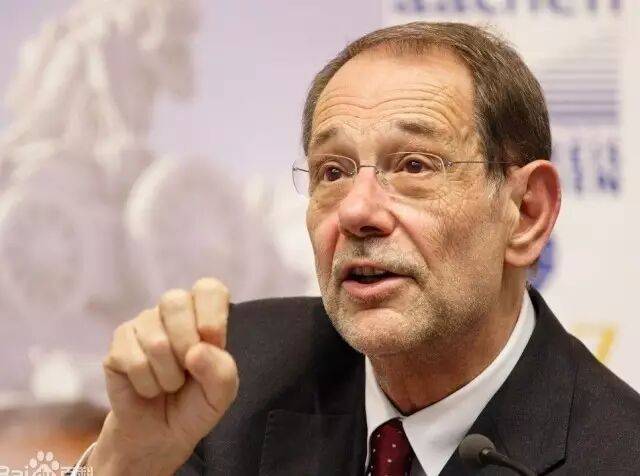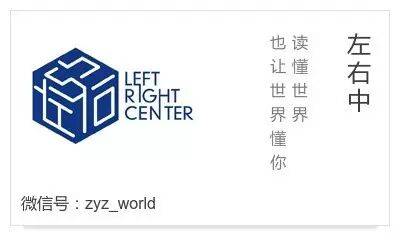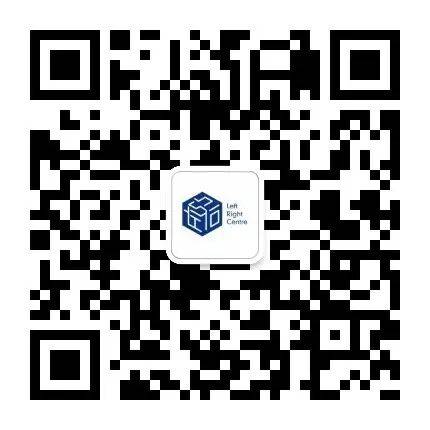49951
|
Click the blue text above to follow Tip: In the latest version of WeChat, click on the "China News Weekly" International Department WeChat official account "Left and Right Center" and set the "Top Official Account" to see our updates as soon as possible. This article was first published on February 13, 2017 The 791st issue of "China News Weekly" The original title is: "The End of an Era?" 》 Text | Javier Solana de Madariaga He has served as the EU High Representative for Foreign Affairs and Security Policy, NATO Secretary General and Spanish Foreign Minister. Currently President of the Center for Global Economics and Geopolitics of the Spanish School of Management and Distinguished Fellow of the Brookings Institution Introduction The UK voted to leave the EU and Trump won the US election. Behind a series of extremely abnormal political events in 2016 was the strong impact of populism on the Western world. Globalization, the Internet revolution, the new technological revolution... the important achievements of the development of human society in recent decades have unexpectedly brought the world system into the process of reconstruction. The challenges brought about by this process will bring great uncertainty to international politics into 2017. As an indispensable player in this process, while China is carrying out steady adjustments and reforms, it also strives to play a constructive role in the construction of a new world system. In the face of a sharp and profound fission in history, the cover feature of the 791st issue of "China News Weekly" "Populism and the World in 2017" invites world-class scholars, politicians, and business leaders such as Fukuyama, Blair, and Soros to write their reflections on the populist wave in the West, providing inspiration for our understanding of this changing era. Link to the article on the cover topic "Populism and the World in 2017" (part):
 Javier Solana, former EU High Representative for Foreign Affairs and Security Policy, NATO Secretary General and Spanish Foreign Minister. He is currently the President of the Center for Global Economics and Geopolitics of the Spanish School of Management and a Distinguished Fellow of the Brookings Institution. Picture|Network  As 2016 comes to an end, the outlook for 2017 is shrouded in uncertainty. Tensions are rising in the Middle East and populist movements have emerged in Europe and the United States. The tragic Syrian conflict in the Middle East will continue after several efforts to mend relations failed because of fundamental disagreements over the future role of Syrian President Bashar al-Assad in the peace process or political transition. By the end of 2016, Syrian government forces, with the support of Russia and Iran, had recaptured almost all of Aleppo - once the largest city in Syria, it has now been completely destroyed in the flames of war. The top priority for all countries in 2017 must be to achieve peace in Syria through close regional and international cooperation. On December 20, 2016, Iran, Russia and Türkiye held a tripartite meeting in Moscow to discuss a political solution to the Syrian conflict. The most surprising thing is that it was Russia, Iran, and Turkey rather than the United States and the European Union that negotiated such an agreement. A positive development in 2016 came in March, when the EU and Türkiye reached an agreement to resolve the refugee crisis. Since the beginning of this conflict, Türkiye has received approximately 3 million Syrian refugees. Although EU-Turkey relations are not at an all-time high, the two sides must continue dialogue in 2017, not least because they share many common interests based on economic interdependence, the refugee crisis and the collective fight against terrorism. Furthermore, Brexit negotiations will affect European politics in 2017. The UK may activate Article 50 of the Lisbon Treaty in March, triggering the formal process of withdrawing from the EU. The difficulty will be agreeing to ensure a healthy future EU-UK relationship. Doing so will not be easy, and EU negotiators have set a timetable of just 18 months. Although there are still many uncertainties, one thing is very clear, that is, if the UK wants to retain access to the single market, it must accept the EU's four liberal policies, including free movement of labor. Several European countries will hold general elections in 2017, and isolationist and anti-European populist movements may be strong during this period. For the EU, losing a militarily and economically important country like the UK is undoubtedly a blow, but losing a founding member like France may have tragic consequences. Fortunately, many Europeans’ views of the EU are actually showing signs of improving after the Brexit vote. But that doesn’t mean the challenges facing EU governments in the new year have eased. They must reunite societies fragmented by powerful global forces such as globalization and rapid technological innovation. The Brexit referendum, followed by Donald Trump's victory in the US presidential election, marked the rise of populist forces in the West. Trump has recruited oligarchs and former military personnel into his cabinet, and we have reason to doubt whether he will fulfill his promise to govern the country without getting rid of the "establishment" in Washington. Trump’s upcoming cabinet is full of unknowns, but there is no doubt that his resistance to multilateral institutions will jeopardize international cooperation to solve the world’s most serious problems. This will certainly pose a threat to US-EU relations. In the past few years, the Paris climate agreement and the Iran nuclear deal have brought a glimmer of hope to a world far away from multilateralism. In the coming years, such glimmers of hope will become increasingly rare. Now more than ever, dialogue among major powers is needed to build strategic mutual trust. Trump's statement questioning whether the United States will continue to adhere to the "one China" principle is very likely to seriously damage the relationship between the world's two largest economies. Similarly, although the Trump team does not lack a certain degree of pro-Russian tendencies, the US-Russian relationship also lacks strategic mutual trust because of the US accusations of Russia's military intervention in Syria and eastern Ukraine and interference in the US election. The new year is particularly important for Europe. Rooted in a shared respect for democracy, freedoms and human rights, the relationship between the EU and the United States must remain strong. In the turbulent year of 2016, there was little positive news in international politics, so 2017 is destined to be full of challenges and uncertainties. But the biggest uncertainty is: will 2016 be just the end of another year, or the end of an entire geopolitical era? Recommended in the past Cover·Feature trump team Wang Jisi: With the arrival of "strongman" Trump, how much impact will China-US relations have? Why is the Trump Cabinet an unbalanced, closed but disharmonious small circle? Character Pence: The most powerful U.S. vice president in history? During the running-in period of the Trump cabinet, Sino-US maritime frictions are likely to escalate Who is Duterte? Character·The “least bad” Duterte Exclusive Interview with President Duterte | Interview Notes 2017 Spring Festival Special Issue·For the Middle-aged Yu Zemin: Continuing to grow psychologically and balancing physical prosperity to decline Luqiu Luwei: When you reach middle age, do you still value yourself more in the eyes of others? Yu Dan: Young people are drunk, and middle-aged people are sober.Yefu: Middle-aged life experience is like escaping Zen Liao Weitang: When we reach middle age, we must say goodbye to a part of ourselves High-end interviews Philippine President Duterte | U.S. Ambassador to China Baucus Former Italian Prime Minister Letta | Former New Zealand Prime Minister Helen Clark Schwarzman, Chairman of Blackstone Group | Li Daokui, Dean of Schwarzman College Everyone's column Solana, former NATO Secretary General Solomon Ben Ami, former Israeli Foreign Minister Engel Woods, Director of the Blavatnik School of Government, University of Oxford Michael Hesse Chief Economist, Allianz Insurance Company Huang Yanzhong, Fellow, Council on Foreign Relations Editor likes Wang Jisi writes: We firmly believe that Sino-US relations will eventually get better He Di and Wang Jisi: Looking for the answer to "avoiding bad things" from the 200-year history of Sino-US relations Exclusive Interview‖ U.S. Ambassador to China Baucus: Why I traveled to 31 provinces in mainland China The murder of Kim Jong-nam: Murder based on the logic of "palace struggle"?Revealing the secret‖How China’s high-end drones can see through the clouds and see the “rainbow””    |